Explainer: What does Yemen's fresh phase of pro-Gaza military operation signify?
By Ivan Kesic
On Friday, Brig. Gen. Yahya Saree, the spokesperson for the Yemeni Armed Forces, issued a statement announcing the fourth phase of the Arab country’s military operations against the Israeli regime.
These operations are in solidarity with the people of Palestine facing the Israeli genocidal war.
Since October last year, the Yemeni military has carried out a string of attacks on targets in the occupied territories, as well as ships in the Yemeni maritime areas with owners linked to the Tel Aviv regime or those headed to the ports in the occupied territories.
They have either downed or launched drone and missile attacks on ships linked to the Israeli regime, as well as vessels linked to the US and the UK, countries deeply complicit in the Gaza genocide.
Saree's statement, in which "the commencement of the fourth phase of escalation" was announced, echoed the words of Sayyed Abdul-Malik al-Houthi, the leader of Yemen's Ansarullah resistance movement, that he delivered in a speech a day before the announcement.
The Yemeni army has declared the initiation of a fresh phase in Yemen's retaliatory operations, carried out in solidarity with the Palestinians facing the Israeli genocidal war on Gaza. pic.twitter.com/9gmtPe3gNG
— Press TV 🔻 (@PressTV) May 4, 2024
What is the context of the statement?
On Thursday, al-Houthi said that Yemen is preparing a new round of escalation if the Israeli occupation continues its aggression against the Gaza Strip, referring to the planned invasion of the city of Rafah.
Rafah is a Palestinian city in the south of the Gaza Strip, where nearly more than half of Gaza's population of 2.4 million has sought shelter from Israeli strikes.
The Israeli regime is now planning a full-fledged invasion of the city, which could prove catastrophic.
Al-Houthi stressed that the naval operations carried out by the Yemeni armed forces are "complex, important and based on advanced capabilities," noting that the American and British economic losses will multiply after they are faced with the Indian Ocean dilemma.
He further pointed out that Washington and London already have serious issues with the alternative sea route around Africa, and especially the Israeli regime with the port of Eilat (Umm al-Rashrash), where only two ships have sailed in the past six months.
In the same context, al-Houthi noted the withdrawal of at least ten US warships and eight European warships from the Red Sea, attributing this to a sense of failure to prevent or limit the operations of the Yemeni military against the genocidal war on Gaza in which the US and Europeans are complicit.
In a separate statement earlier, Mohammed Ali al-Houthi, a member of Yemen's Supreme Political Council, had warned Washington not to "play with fire," saying Yemen possesses far greater strategic stockpiles of deterrent weapons than they could imagine, in terms of quantity, quality and variety.
What does the statement imply?
For the fourth phase of retaliatory operations, Saree outlined three points: targeting ships that violate the set conditions, immediate implementation of the action plan, and imposing sanctions on all ships related to supplying occupied Palestinian ports if the Israeli regime invades Rafah.
In the first point, it was emphasized that all ships that violate Yemeni-imposed sanctions banning the use of occupied Palestinian ports on the Mediterranean coast will be targeted in any area within the Yemeni military's reach.
The implementation of this decision on the expansion of military actions occurred immediately after the statement was issued, as was explained in the statement itself.
The third point referred to the possible extension of Israel's genocidal aggression to Rafah, in the event of which Yemen will impose comprehensive sanctions on all ships and companies related to supplying and entering the occupied Palestinian ports.
This applies to all ships and companies, regardless of their nationalities and destination, which would become a retaliatory target for Yemen in the operational area.
Saree also noted that the Yemeni military will not hesitate in preparing for broader and stronger escalatory stages until the aggression is halted and the siege on the Palestinian people in Gaza is lifted.
He made the statement during a million-man rally in the Yemeni capital Sana’a, where almost every week Yemenis take to the streets to condemn the Israeli genocidal crimes in Gaza and reiterate their support for their country’s retaliatory operations against the Zionist entity.
What does this mean for the future?
According to Saree's latest statement and subsequent statements made by Yemeni officials such as Zeifollah Al-Shami, the information minister in the Yemeni government, the goal is to pressure the Israeli regime to stop the planned aggression on Rafah and end the war against Gaza as soon as possible.
Since the start of Operation al-Aqsa Storm (Al-Aqsa Flood) on October 7, a total of 156 operations have been carried out across the seas and against the Israeli regime's targets in southern occupied Palestine, according to Yemen's Ansarullah resistance movement.
These operations against naval vessels were conducted with 606 different drones, and ballistic and cruise missiles, and additionally, 111 such weapons were used directly against the occupied territories.
The Yemeni operations have had a devastating effect on the Israeli economy, which is losing billions due to the naval blockade, especially at the port of Eilat, where international trade has been decimated.
Yemen has proven capable of hitting targets over 1,700 km away, and the latest announcement to expand operations to the Mediterranean is not technologically over-demanding as the Israeli-occupied ports of Ashdod and Haifa are only 260 to 360 km more distant, respectively.
In recent military parades, Yemeni forces demonstrated that they have weapons systems with a range of 2,000 km, including the Waeed-2 loitering munitions and the Tufan ballistic missile.
The content of the announcement is not focused only on the Mediterranean in a geographical sense, but also on all ships that use Israeli ports in that sea, or belong to companies that help the Zionist regime.
These also include ships already using the alternative route around Africa, West Asian and South Asian ports, they sail along the Indian Ocean route close to Yemen where they can also become a target.
VIDEO | 3,000 bodies of Palestinians ‘evaporated’ as Israel used banned weapons in Gaza
Iran says political pressure cannot undermine its ‘inalienable’ enrichment right
Former Trump adviser Bannon plotted with Epstein to 'take down' Pope Francis
China warns US against ‘plotting’ on Taiwan, says it risks confrontation
VIDEO | Zionist takeover of UK police
VIDEO | Trump-Netanyahu meeting
Iran’s shortest rail route between China and Europe
'Shameful': Hamas decries Western systemic campaign against UN expert Albanese


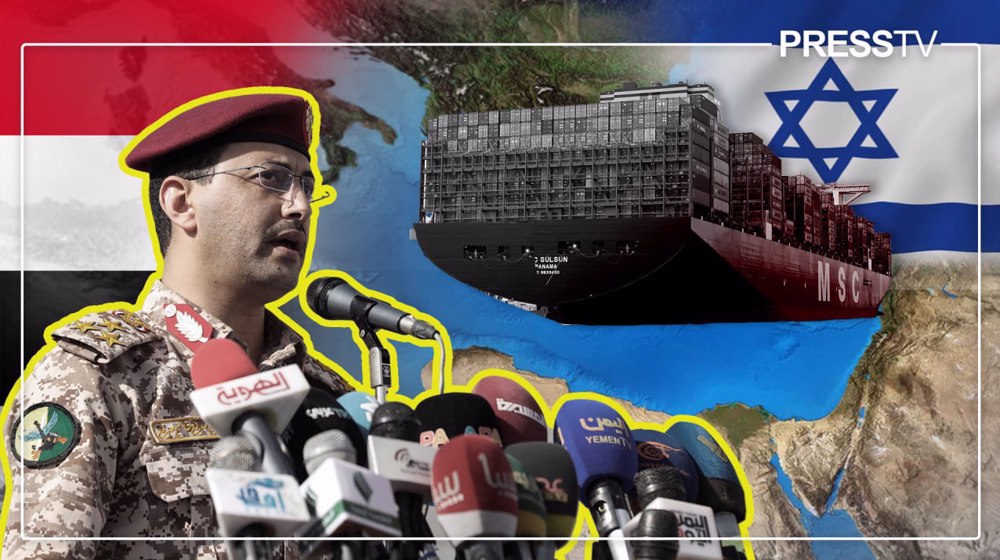
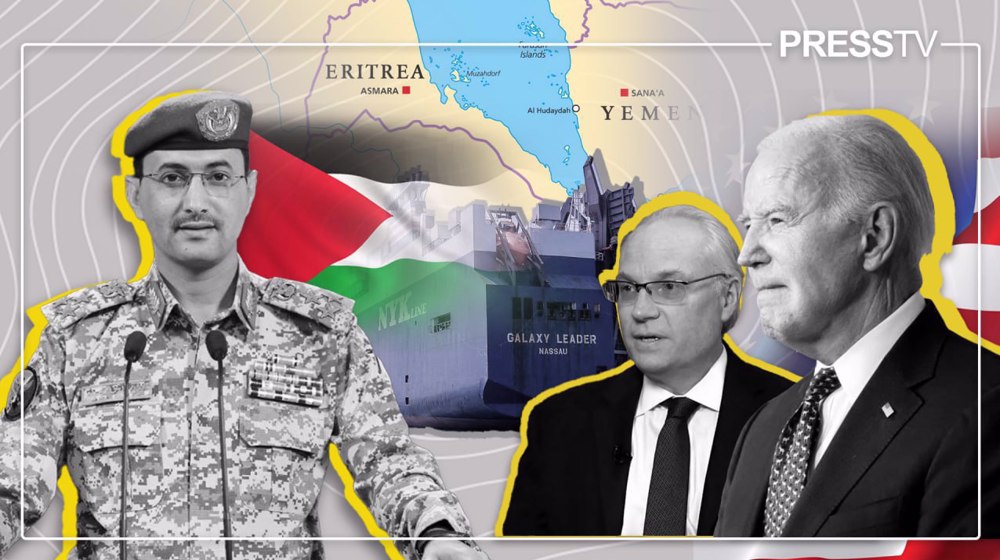
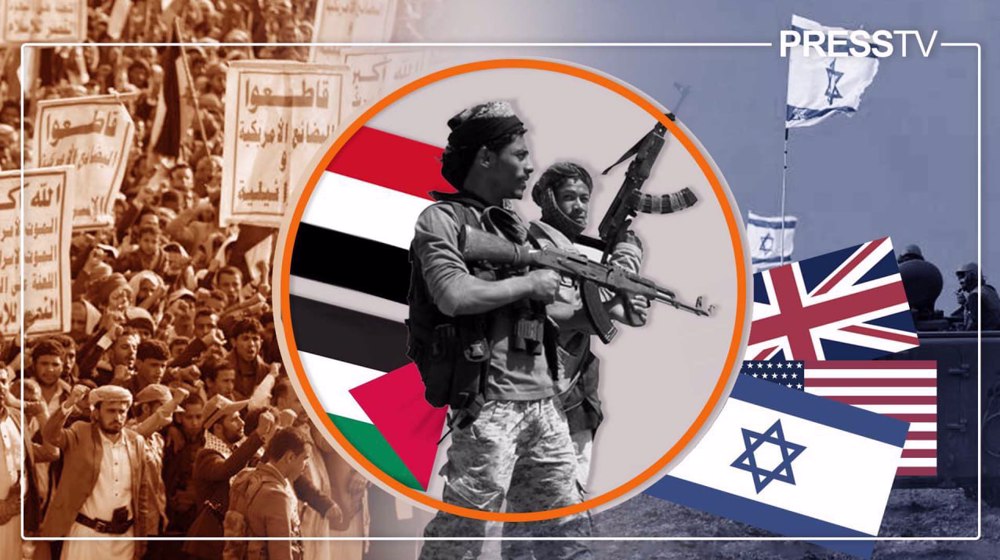
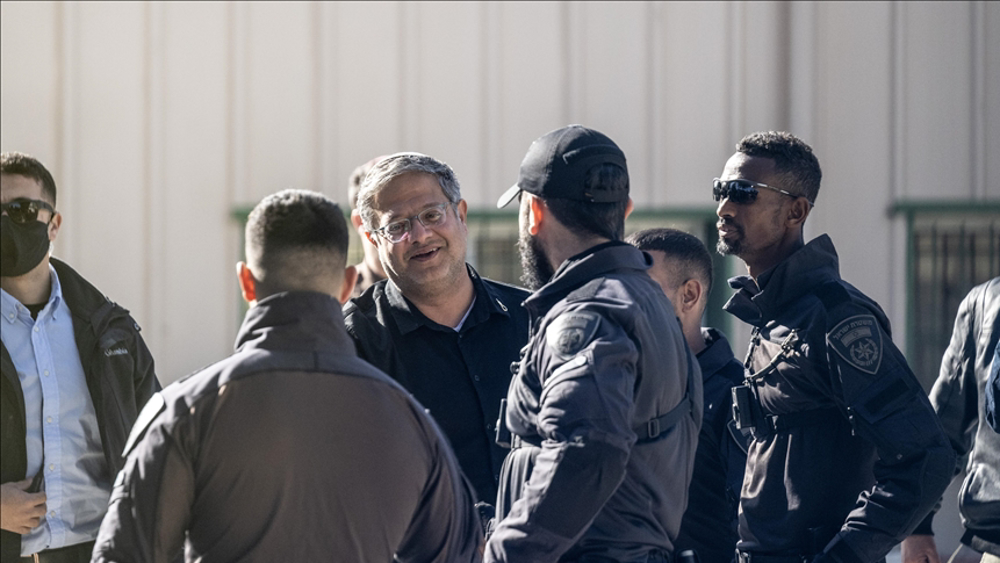

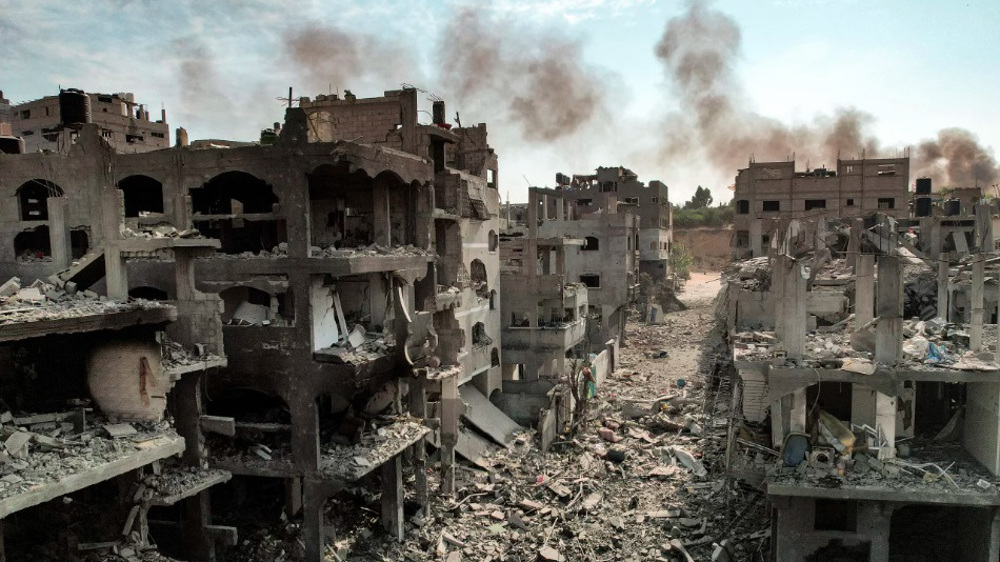



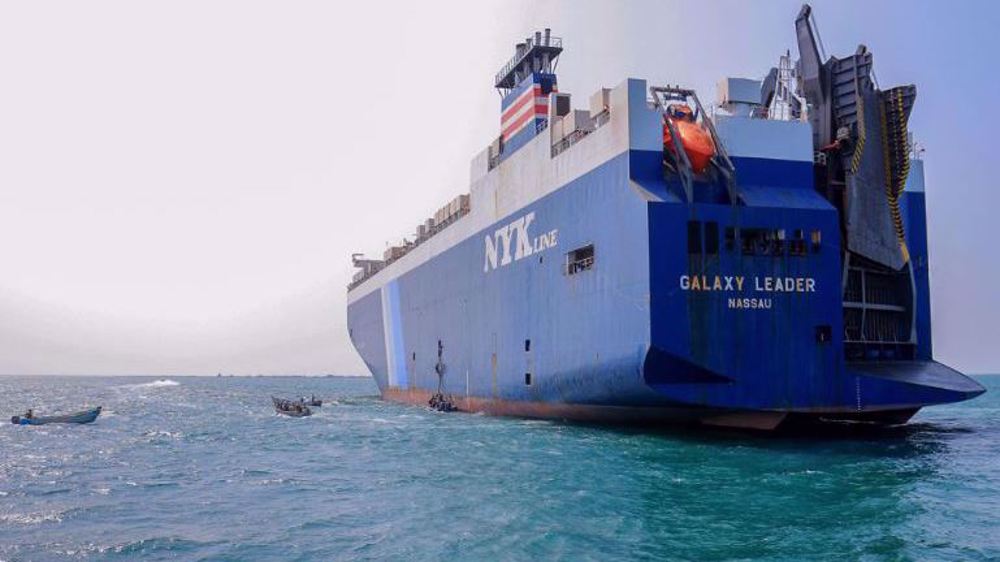
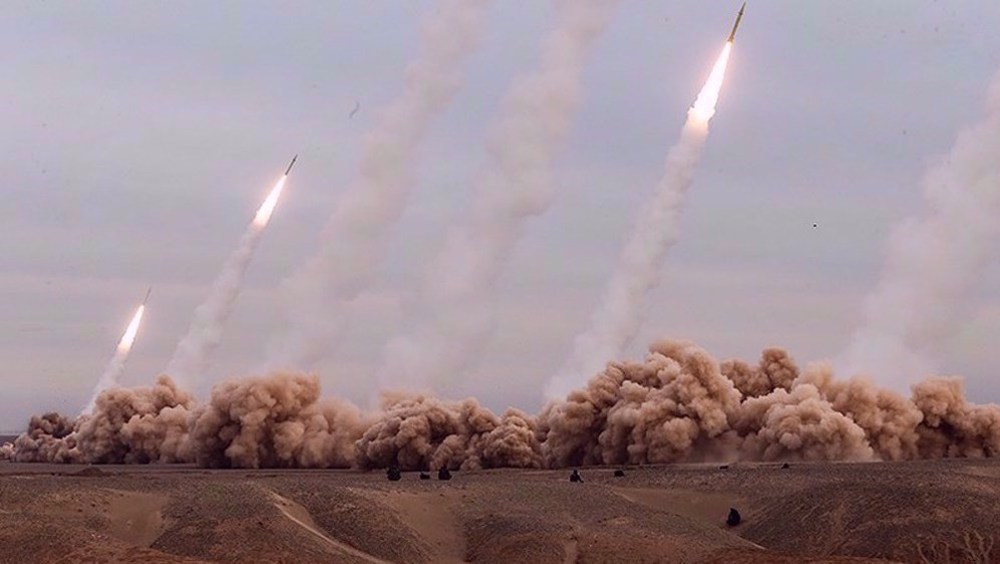
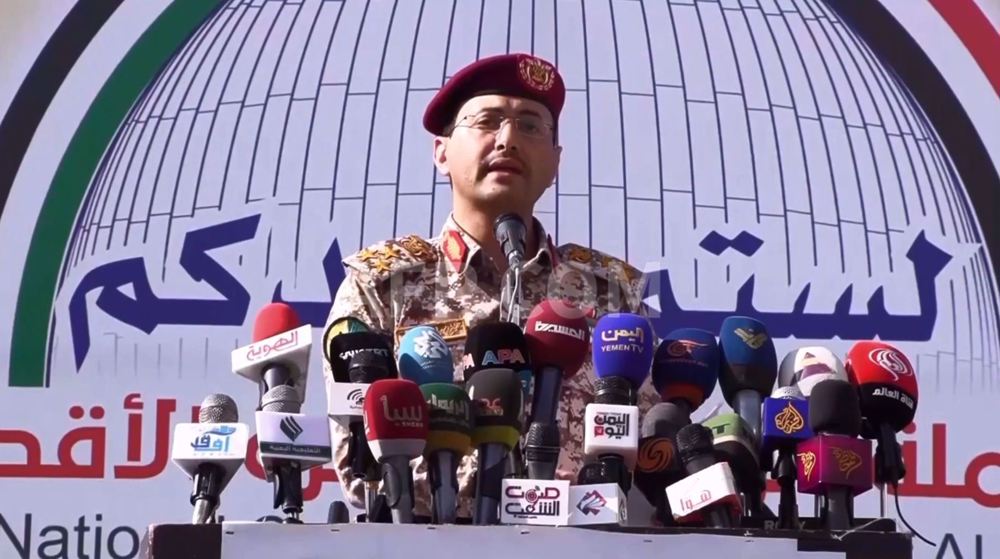
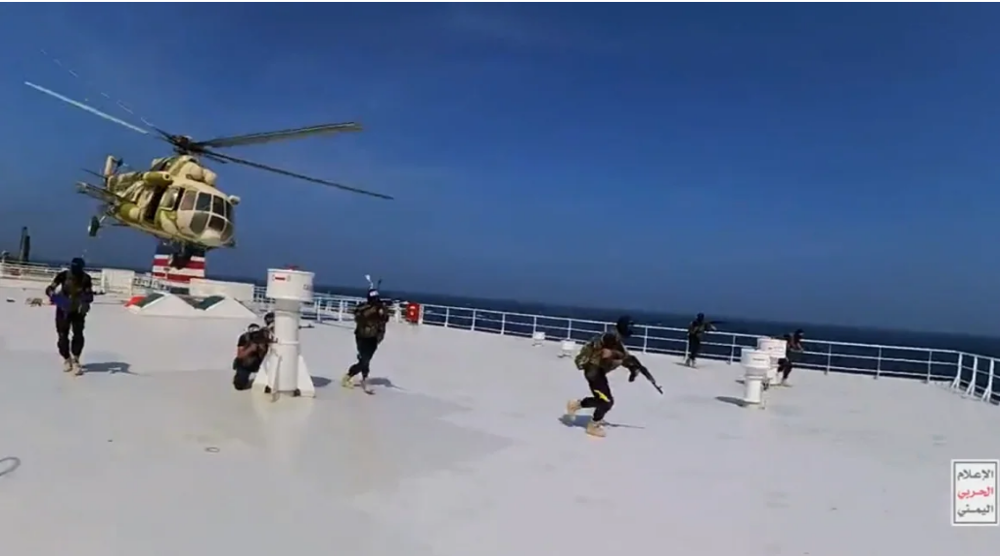
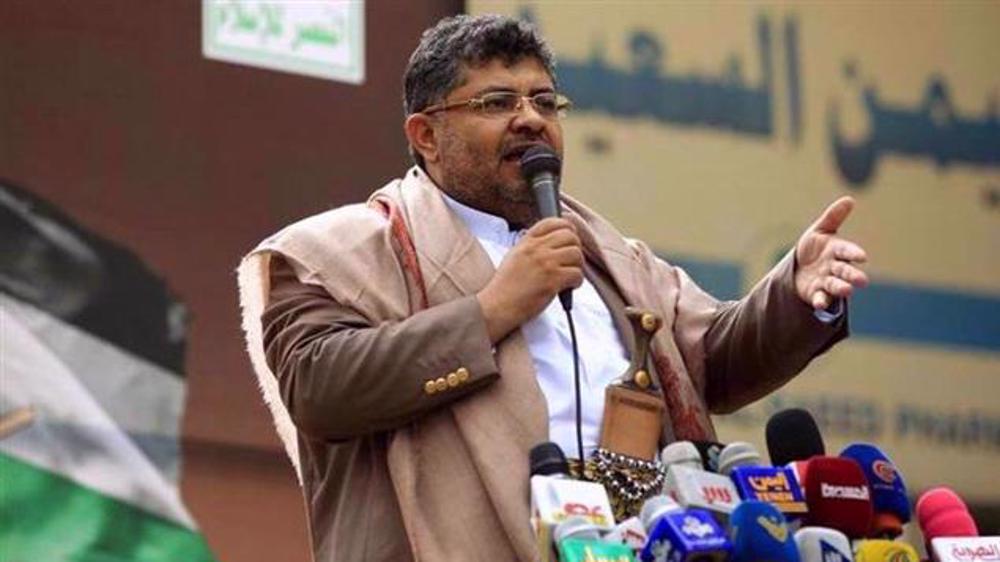

 This makes it easy to access the Press TV website
This makes it easy to access the Press TV website